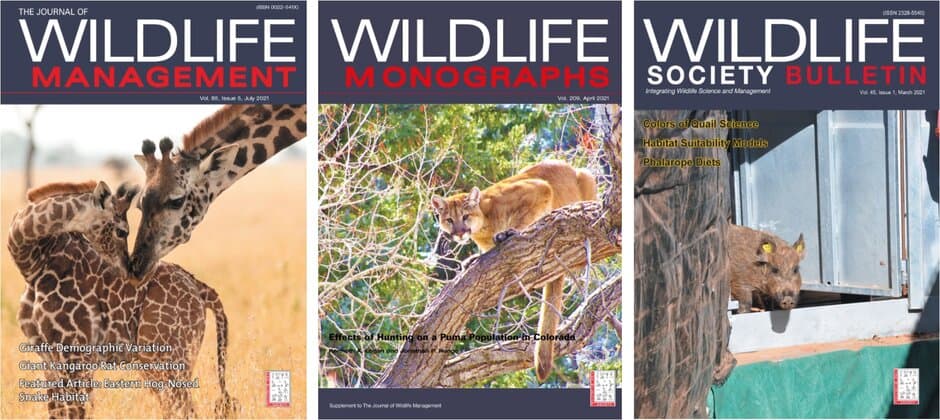Share this article
Roundtable to discuss direction of TWS journals at Annual Conference
The 2021 virtual conference of The Wildlife Society will provide an opportunity for students and young professionals to get better acquainted with the editors of the society’s academic journals.
Paul Krausman, editor-in-chief of the Journal of Wildlife Management, and Bret Collier, editor-in-chief of the Wildlife Society Bulletin, will host a roundtable discussion open to students and young professionals about how to get articles published as well as the publication process. Part of the discussion will also center around branching out to more article topics and improving diversity and inclusion in the journals.
“I hope we can increase a little bit of dialogue between potential authors and the editors,” Krausman said. “I get very little feedback from authors. I almost get the impression that they’re afraid of editors.”
The goal of the discussion featured at The Wildlife Society’s 28th Annual Conference this year is twofold. On one hand, Krausman would love to see more submissions on conservation issues important for the journal.
“People think we’re a whack ‘em, and stack ‘em journal—if the animals aren’t hunted, we don’t care about them,” Krausman said.
Some of this criticism came in the form of a recent editorial published in JWM by senior and mid-career scientists. “The historical emphasis on game species in JWM has diminished in recent years but still persists,” the authors wrote. “This pattern exists despite the greater number of nongame wildlife species and the fact that more of them are in trouble, and much less studied, than game species.”
But Krausman said JWM also strives to publish more articles about conservation and management of non-game animals.
He also hopes to hear possible recommendations regarding if and where the journal might be falling short on questions of inclusivity. This comes in the context of another recent editorial published in JWM by students and early career researchers criticizing the lack of inclusion in the journal.
“We also advocate for diversity in terms of gender, race and ethnicity within associate editors,” editorial group of early-career researchers wrote in another editorial. “Moving past the white male-dominated culture that is traditionally associated with wildlife management and making room for perspectives that have historically been disregarded or suppressed will enrich JWM’s agency to create positive change for wildlife and society. In turn, a cultural shift within JWM has the potential to trigger a reshaping of the field of wildlife management as a whole. We believe JWM is a culturally influential institution in our field; with this status comes the responsibility to foster equity and inclusivity in our community.”
Some of these criticisms “stung,” Krausman said, prompting the decision to organize an open roundtable to discuss the issues.
For more information about the TWS Annual Conference click here.
Header Image: Credit: TWS








